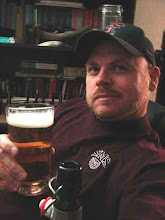 Central to Weber’s idea of religious and social change is “the integrations and discrepancies between expectation systems which are institutionalized in normative orders and the actual experiences people undergo" [1, pg. lvi] or, in other words, the sociological study of what people interpret to be consequences for themselves and the aspects of the human condition which they are apart in relation to conformity or nonconformity with an established normative order. This basic tension is how Weber defines and analyzes the progression of social and religious changes within a given society and the ensuing emergence of ‘breakthrough.’
Central to Weber’s idea of religious and social change is “the integrations and discrepancies between expectation systems which are institutionalized in normative orders and the actual experiences people undergo" [1, pg. lvi] or, in other words, the sociological study of what people interpret to be consequences for themselves and the aspects of the human condition which they are apart in relation to conformity or nonconformity with an established normative order. This basic tension is how Weber defines and analyzes the progression of social and religious changes within a given society and the ensuing emergence of ‘breakthrough.’ At the beginning of his work, Weber is careful to state, “The essence of religion is not even our concern, as we make it our task to study the conditions and effects of a particular type of social behavior" [1, pg. 1]. He simply wishes to approach the study of religion from a ‘subjective’ standpoint or from the viewpoint of the religious behavior’s “meaning.” He posits that religion is rationally motivated by ‘the rules of experience’ and therefore should not be apart from the range of everyday conduct, “particularly since even the ends of the religious and magical actions are predominantly economic" [1, pg. 1]. Here, via perceived extraordinary powers which he describes as charisma, begins a process of abstraction based on experience in which they are rationalized, symbolized, and stereotyped into sacred law and, upon further reflection, into objective specialization of gods and numina which results in priests. These spirits reflect certain principles of order, which develop into an ethical attachment of individuals to a cosmos of obligations. Magic and adulation develop into obedience to religious law. Taboo is transformed into a systematization of ethics and the irrational immergence of hope for salvation. Prophecy and priesthood work to produce a centralization of ethics under the aegis of religious salvation.
This dynamic is played differently in divergent political, social, and economic classes. Certain religions developed in urban environments while others were mostly agrarian. Proletarian interests tend to be more irrational and display resentment while the concepts of sin and salvation tend to not be found in the political elite but are used for political control and legitimacy. The middle class tends toward a congregational rational ethical religion. Some Theodicy of disprivilege is a component of every salvation religion, which draws its adherents primarily from the disprivileged classes. Revolution may arise through the reinterpretation of stereotyped magical or ritual norms. Political and ethical communities intermingle to loose gods from political connection to become universal powers and ethical and economic rationalization clash resulting in a rejection of ‘the world’ and especially economic activities. Sex and art are also defined through ethical rationalization resulting in hostility indicative of every authentic religion of salvation.
Weber’s approach is basically evolutionary which reflects the times in which he lived and wrote. I find it notable that he, like Durkheim, both missed the influence that science would play in both society and religion even though they both used to some degree the evolutionary model provided by science. I did however find his three bases of authority or legitimization (charisma, traditionalism, and routinization) to be insightful. Although it could be seen as an oversimplification, this process does seem to be prevalent in the forms of most aspects of religion and politics. I am not so sure that “bureaucratic rule was not and is not the only variety of legal authority, but it is the purest [1, pg. 299]” but in his historical world this seemed to be the model for western society.
- Safari Bob
References
[1] Weber, M. (1991). The Sociology of Religion, E. Fischoff (Trans.). Boston: Beacon Press. ISBN: 0-8070-4205-6






No comments:
Post a Comment